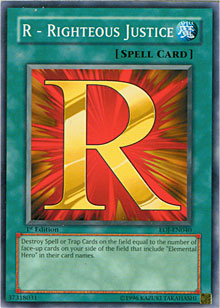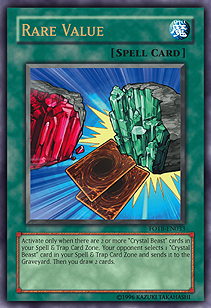 Welcome back! This week, I’m following the pattern set out on the last double-article day, and will be presenting a companion piece to Solid Ground.
Welcome back! This week, I’m following the pattern set out on the last double-article day, and will be presenting a companion piece to Solid Ground.
Rights and responsibilities — and the link between the two — are the subjects under discussion for today. I’ve already laid out these ideas for the players, so let’s take a look at the same topic for the judges. Now, I’ve found that the average judge at an event is the subject of more focused attention than the average player — what a judge says or does (or doesn’t say or do) is much more likely to be noted. This scrutiny makes it important for us to understand our roles at the event, so we can correctly balance our rights and responsibilities alongside those of the players.
As I have already laid out in the Solid Ground article, every participant at an event — player, judge, tournament staffer — has rights. I rarely see anyone at an event with no concern for their rights, but sadly I have seen people with very little thought for their responsibilities. I am firmly of the opinion that you do not have one without the other, so let’s line them all up and see how they connect with one another.
Judges’ Rights and Responsibilities:
Judges have the right to be treated with respect.
Judges have many jobs to do at an event, from putting up pairings, answering rulings questions, to (yuck) picking up garbage. However, they are not event drudges — they are absolutely vital to the success of the event. For the work they do, judges are entitled to be treated respectfully.
Judges have the responsibility to behave with professionalism.
Regardless of the situation a judge may find him or herself in, he or she should always take the high road and be as professional as possible. Judges should rely on patience and civility in all their interactions with players or fellow judges. They should never be brusque or abrasive, or repay rudeness with rudeness. Judges should listen attentively to players who have questions or concerns, to make sure they understand clearly what the players need.
Judges have the right to be listened to.
When a judge is making an announcement, giving a ruling, or issuing a penalty, players should be quiet and let the judge speak. They should pay attention, and not talk over the judge. If a floor judge is called over to answer a rulings question, players must listen to the judge’s ruling before asking to appeal.
Judges have the responsibility to keep up on rulings.
It’s unreasonable to expect any judge to know absolutely every ruling. However, judges should be familiar with commonly played cards, and know how to answer questions about card interactions they are likely to see. There are a variety of official online card FAQ’s, comprehensive rulings documents, and forums providing answers to rulings questions to help you prepare for events.
Judges have the responsibility to know tournament policies and penalties.
Upper Deck’s tournament policy documents are hosted online,, and accessible to all. They are also frequently updated, so judges should make a habit of reviewing the documents regularly. Judges might overlook policy because they mistakenly believe that rules knowledge alone is important, but this is unwise. Players have the right to accurate, consistent administration of policy and penalties, and judges cannot provide that if they do not study. Please never put yourself in the position of not knowing what to do, because you have not familiarized yourself with these documents.

Judges have a right for their work to be valued.
Judges have the responsibility to fulfill their roles.
Head judge, team lead, floor judge — whatever a judge’s role may be, he or she is obligated to fill it. Not everyone will get to be the head judge or a team lead for a given event, but every judge needs to pull his or her weight. If one or two judges decide to slack off, someone else has to do that work on top of his or her own, and that unbalances the event. If one judge decides to let his or her job slide, it affects the entire tournament.
Judges have the right to support from their tournament organizer and Upper Deck.
The tournament organizer should work with the judges to make sure they have what they need to do their jobs — everything from the right tournament supplies to adequate breaks and drinks and food when needed. Events should be adequately staffed, so as not to overwork the judges. Ideally, the tournament organizer ought to offer some sort of gift as thanks for work well done — there is no established rule for this, but it is a solid way to show appreciation.
Upper Deck’s organized play department runs the judge program, so judges have a Judge Manager there to oversee the program, answer questions, provide guidance, develop tests, and protect judges’ interests. The judge manager also works to develop new tests, new opportunities, and rewards and incentives for hard-working judges. Judge@upperdeck.com is the email address to use when you need answers or help.
Judges have the responsibility to honorably represent their event company, Upper Deck, and the judging program.
When a judge dons a judge shirt and steps out onto the floor, he or she takes on an identity beyond him or herself. That shirt has the Upper Deck logo on it, which makes the judge a representative of the company. The shirt says "JUDGE" and that makes an individual into a representative of all judges everywhere. How a judge conducts him or herself casts a reflection on the entire program, so we need to remember that whenever we are out on the floor.
Let’s keep it in mind when we are off the floor, as well — removing the shirt doesn’t remove the responsibility. Even when you are not actually judging at a tournament, you will still be viewed as a judge, and expected to behave accordingly. It might seem unfair, since players will often let themselves go, but there it is.
Judges, please make sure you’ve read over Solid Ground this week — remember, the rights and responsibilities of the player are also an important part of the events you run. Balance the players’ sides with the judges’, and you are on your way to a smooth, well-run event. And we all like to look over the floor at the end of the tournament and say to one another, "You know, that one really went well!" don’t we? You do your part, let the players do theirs, and let’s see what we can accomplish.